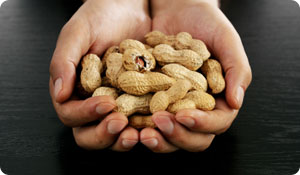
Nut Allergy 101
When you're dealing with a child who has a nut allergy, you probably insist on keeping your kitchen nut free. But what happens when he leaves the confines of your home? Other settings may pose many dangers that are out of your control. The good news is that there are things you can do to protect him wherever he goes.
Safety Tips for Kids with Nut Allergies
Please review the following list of suggestions that you should know.
-
If your child is allergic to peanuts, he could also have an allergy to tree nuts, including almonds, brazil nuts, walnuts, hazelnuts, macadamias, pistachios, pecans and cashews. Therefore, you should ask an allergist about the need to avoid contact with any of these foods. Since nut allergies can be more dangerous than an allergy to other foods, it's always better to play it safe than to put your child at unnecessary risk.
-
Understand that in addition to avoiding foods that contain any type of nut, a child with a nut allergy must also be on the lookout for cross contamination, which occurs when "safe" foods are prepared using any utensils or equipment that's come into contact with a possible allergen. This can be enough to spark a dangerous reaction.
-
When you eat in a restaurant or buy prepared food in the grocery store, always check the ingredient list carefully for nut products or exposure to nuts in the manufacturing plant. Foods that may be of particular concern for kids with nut allergies include processed desserts, sweets and cereals, snack bars, a variety of Asian dishes and sauces and dips. When in doubt, check with the chef in a restaurant or call the manufacturer of a packaged product or else go without.
-
Get the message out wherever you go about your child's nut allergy. The school should understand this condition and know what needs to be done. You should also let the staff in any restaurants you frequent know the seriousness of the situation. Finally, anyone else in contact with your child should be aware of the potential dangers that exist.
-
Be prepared for a reaction to occur by making sure your child always carries (or is near) an epi-pen. In an emergency, every second counts so always be sure your child has access to immediate care.
Play it Safe
A nut allergy can be very dangerous, but by using the proper precautions, your child can stay healthy and safe.
Sources:
KidsHealth.org/Nemours
http://kidshealth.org/parent/medical/allergies/nut_peanut_allergy.html#
Pediatric Advisor 2009/CS Mott Children's Hospital
http://www.med.umich.edu/1libr/pa/pa_treenuta_pep.htm





